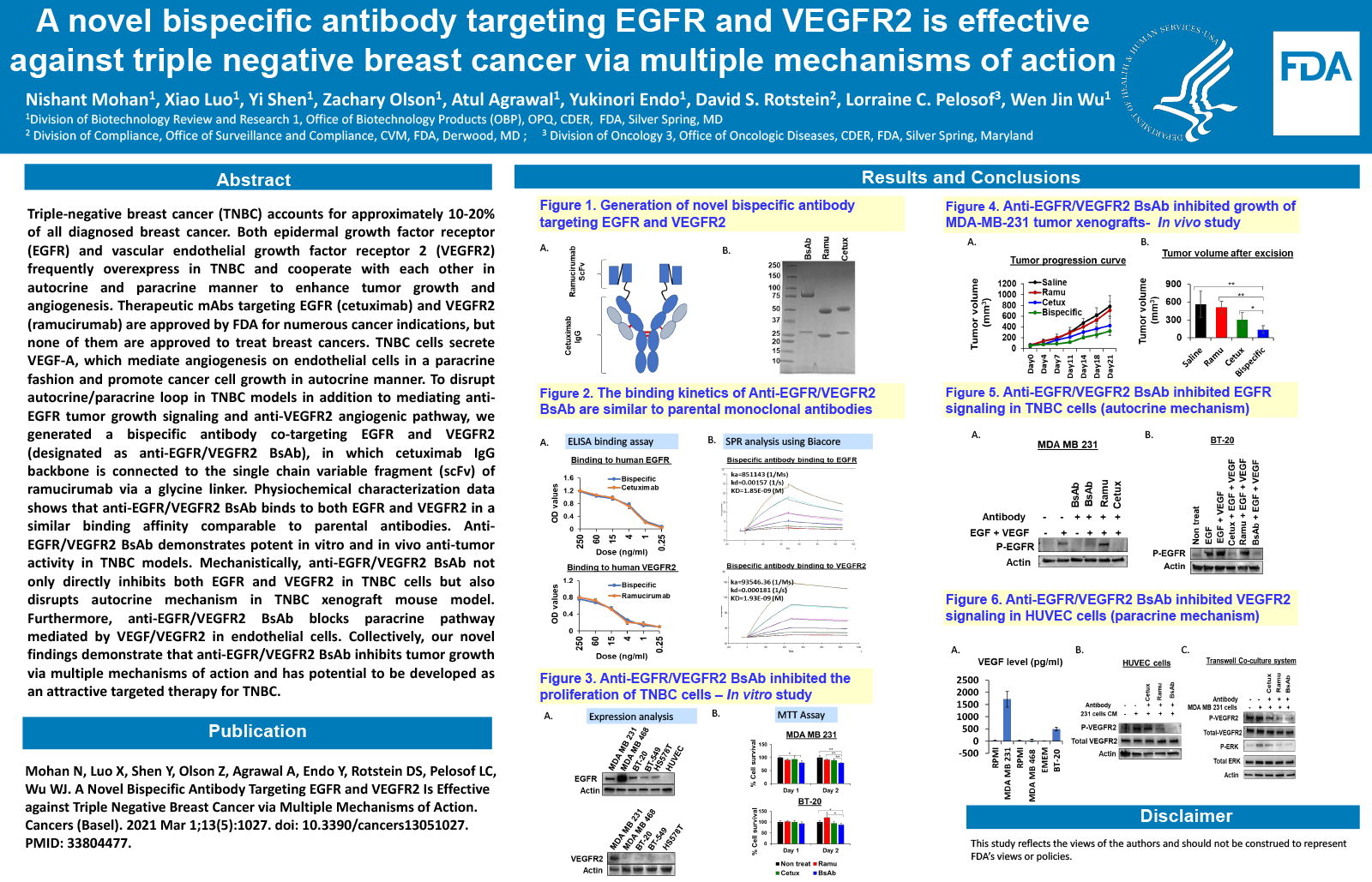2021 FDA Science Forum
A Novel Bispecific Antibody Targeting EGFR and VEGFR2 is Effective Against Triple Negative Breast Cancer via Multiple Mechanisms of Action
- Authors:
- Center:
-
Contributing OfficeCenter for Drug Evaluation and Research
Abstract
Triple-negative breast cancer (TNBC) accounts for approximately 10-20% of all diagnosed breast cancer. Both epidermal growth factor receptor (EGFR) and vascular endothelial growth factor receptor 2 (VEGFR2) frequently overexpress in TNBC and cooperate with each other in autocrine and paracrine manner to enhance tumor growth and angiogenesis. Therapeutic mAbs targeting EGFR (cetuximab) and VEGFR2 (ramucirumab) are approved by FDA for numerous cancer indications, but none of them are approved to treat breast cancers. TNBC cells secrete VEGF-A, which mediate angiogenesis on endothelial cells in a paracrine fashion and promote cancer cell growth in autocrine manner. To disrupt autocrine/paracrine loop in TNBC models in addition to mediating anti-EGFR tumor growth signaling and anti-VEGFR2 angiogenic pathway, we generated a bispecific antibody co-targeting EGFR and VEGFR2 (designated as anti-EGFR/VEGFR2 BsAb), in which cetuximab IgG backbone is connected to the single chain variable fragment (scFv) of ramucirumab via a glycine linker. Physiochemical characterization data shows that anti-EGFR/VEGFR2 BsAb binds to both EGFR and VEGFR2 in a similar binding affinity comparable to parental antibodies. Anti-EGFR/VEGFR2 BsAb demonstrates potent in vitro and in vivo anti-tumor activity in TNBC models. Mechanistically, anti-EGFR/VEGFR2 BsAb not only directly inhibits both EGFR and VEGFR2 in TNBC cells but also disrupts autocrine mechanism in TNBC xenograft mouse model. Furthermore, anti-EGFR/VEGFR2 BsAb blocks paracrine pathway mediated by VEGF/VEGFR2 in endothelial cells. Collectively, our novel findings demonstrate that anti-EGFR/VEGFR2 BsAb inhibits tumor growth via multiple mechanisms of action and has potential to be developed as an attractive targeted therapy for TNBC.

